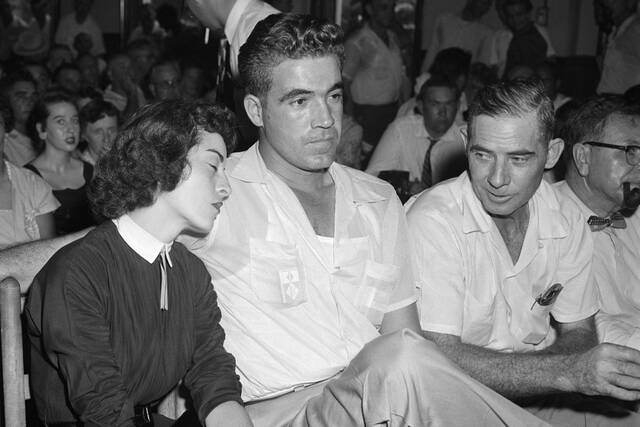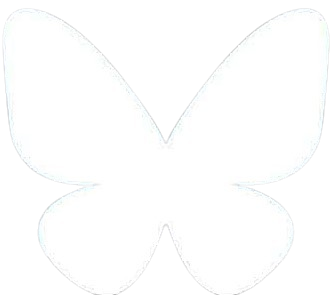This article urges white women to break the chains of their own intergenerational trauma to stand up for racial justice.
Mayella Ewell is one of the most complex characters in “To Kill a Mockingbird.” She is a white woman who makes sexual advances toward her Black neighbor, Tom Robinson. When he refuses, she falsely accuses him of rape. During Tom’s trial, we learn that Mayella’s father is a drunkard who physically and sexually abuses her. Does this excuse the fact that her actions ultimately led to Tom’s death? No! Yet, we understand that Mayella also suffers from systemic violence and oppression — within her home. The situation isn’t black and white.
Sadly, there is truth to the scenario of false accusations. Carolyn Bryant was a white woman who falsely accused Black teenager Emmett Till of coming onto her in Mississippi in 1955 — which led to the boy’s lynching. Carolyn died recently without ever facing criminal repercussions. A grand jury declined to indict her, and a 1955 arrest warrant was never served. Like the fictional Tom Robinson, real-life Emmett Till didn’t get justice in the American legal system.
It should surprise nobody when white women are perceived as part of America’s racial injustice problem, especially after recent headlines about a white woman in Florida shooting her Black neighbor through her front door. So, I was inspired when Target’s chief diversity officer recently encouraged white women to use their voices to speak up against systemic racism.
I am a white woman raised in a small white town in rural Pennsylvania. Historically, the Underground Railroad skirted my hometown for safety reasons. “Vote Right, Vote White” signs appeared on the outskirts of town during the 2008 election season when we elected our country’s first Black president.
I am also a peacebuilder in career and life purpose; I believe that beneath our diverse exteriors, all humanity is one. My father hasn’t spoken to me since Jan. 6, 2021 because I consistently spoke up against racism in his social media posts. We tried to talk through our differences of opinion, but were unable to have civil discourse. I don’t regret giving voice to my core values, even though it resulted in a relationship break. Like the Ewells, my family has its own tough patterns, and the distance has created a sense of safety for me. As I heal my own inter-generational trauma, I increasingly feel peaceful within myself. I am no longer afraid.
It’s important to understand the confusion white women sometimes feel about their role in the struggle for social justice. Some want to help, while also feeling trapped in historical and intergenerational patterns. There can be uncertainty about when and how to use our voices.
In the wake of George Floyd’s death in 2020, I saw many white women — who I perceived to have good intentions of being allies for social justice — get harshly criticized online. While trying to be supportive, we made mistakes by occupying too much airtime, centering ourselves rather than Black women, and/or being “fragile.” While the lessons learned were crucial, I fear the impact of those interactions was to reinforce uncertainty about speaking up. Within my own circles, I heard stories of well-intentioned white women holding back based on the belief that their voices were unwelcome and disruptive in the racial justice conversation. Again, the situation isn’t black and white.
How do we counter America’s polarization, rising hate crimes, and the ongoing threat of political violence? Those of us who oppose these things must raise our voices individually and collectively to promote nonviolence and unity in diversity. We must coalesce in words and action around the core value that the supremacy of any one group in society is detrimental for all of us.
We can’t afford for important segments of the population, such as white women, to be hesitant about speaking up when they encounter racial injustice. Yet figuring out how to respect, embrace and stand up for each other despite our differences is not easy. We must all learn more respectful, equitable, and empathetic ways of interacting with each other to build lasting cohesion in our diverse society. I am grateful for the growing efforts of many across the country to build trust and bridge divides among us.
As for white women, we are not simply part of the problem. We can and must also be part of the solution. I am grateful for the beautiful historical examples of white women civil rights activists:
Anne Braden was a white civil rights activist and journalist who spent 50 years organizing white southerners to support civil rights. She was despised by many white people, but she remained undeterred.
Joan Trumpauer Mulholland was a white woman born to slave-owning grandparents in Georgia. As a child, she walked into a Black community and immediately recognized the differences between what she saw and the way she lived. She vowed then and there to become a civil rights activist and went on to serve as a Freedom Rider, which caused tension with her mother and landed her in jail.
As I use my own voice as a white woman, I want to speak to others like me.
Let us follow the example of the white women civil rights activists before us. The current moment in history has new challenges, but also new opportunities. If we stand together for nonviolence and the value of diversity, we can demonstrate that a new American culture of unity among women and men of diverse characteristics is more than just a dream. It can also become reality.
And if speaking up is too scary right now, I understand. I really do. At least, let’s double down on critically examining historical patterns, seeking out a variety of perspectives, and healing our inter-generational traumas to find greater peace within. These are important first steps. That much is clear.
I wonder. With a husband whose character enabled him to torture a young boy, did Carolyn Bryant feel peace within her home and herself? If Mayella Ewell had felt peace within herself, would she have done what she did to Tom Robinson? These are important questions to ponder.
Meanwhile, we can all work harder not to harm others — no matter who they are or what they look like. Let’s celebrate Juneteenth by committing to building a more peaceful society. The change begins with you.




